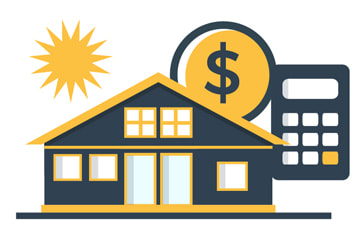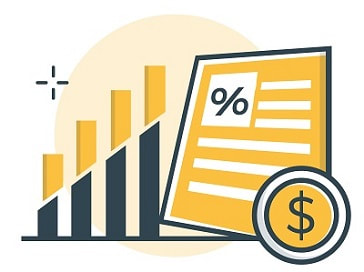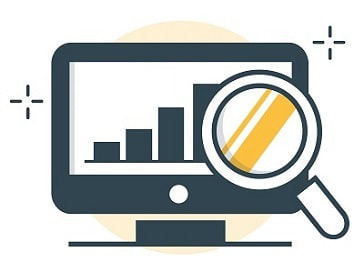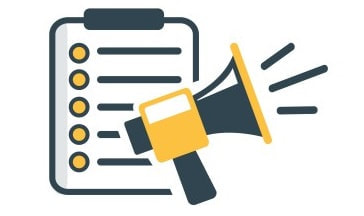Investment Property Mortgages
Do you want to invest in property? Our guide explains the mortgage options available. Be aware - you'll need at least a 30% deposit or sufficient equity in your existing home to be approved
Updated 11 June 2024
Summary
Our guide covers:
- Buying a home to rent out is a bit different than buying a home to live in for two reasons. One, you don’t live in the home and two, lenders view it differently from a financing standpoint.
- Since a rental property is not going to be your primary residence, there’s another layer of risk that lenders must take to provide finance for it.
- Investment property mortgages are, generally, easy to obtain if you meet the requirements, but understanding the differences is crucial.
- This guide is designed to explain the types of investment property mortgages available, as well as important must-know considerations to make before buying a property.
Our guide covers:
What is an Investment Property Mortgage?
If you don’t plan to live in the home you buy, you need an investment property mortgage. The terms of the loan, including the maximum loan amount, is dependent on the fact that you won’t live in the home. Lenders view this situation as ‘higher risk’ because you don’t stand to lose your own residence if you can’t make the payments.
While the hope is that you’d make your payments to avoid causing ill consequences for your tenants, the risks are still higher, which means different requirements, terms, and costs for investment property owners.
While the hope is that you’d make your payments to avoid causing ill consequences for your tenants, the risks are still higher, which means different requirements, terms, and costs for investment property owners.
Important: Understand the Differences Between an Owner Occupied and Investment Property Mortgage
As explained above, lenders view an investment property mortgage as a riskier loan. While the interest rates are the same as home loans for owner-occupied properties, you'll require a higher down payment. Currently, most lenders require at least a 30% down payment, but sometimes even more depending on the property.
Can I still invest in a residential property if I don't have a big deposit?
Yes, if you have equity in your home. Some lenders allow you to put your home as security. This article explains how this works in detail. Be aware that if you use your current home’s equity, it means less cash out of your own pocket, but it does put your primary home at risk if you don’t make payments. Or worse yet, if your investment property's tenants don't pay rent, you'll have to find another source of income to keep up with the mortgage.
Are investment property interest rates higher than normal mortgages?
Generally, they are the same. But lenders base the interest rate on the riskiness of your default; if your chances of defaulting are high, the higher the interest rates lenders charge. Our list of the best home loans applies to property investors.
Can I still invest in a residential property if I don't have a big deposit?
Yes, if you have equity in your home. Some lenders allow you to put your home as security. This article explains how this works in detail. Be aware that if you use your current home’s equity, it means less cash out of your own pocket, but it does put your primary home at risk if you don’t make payments. Or worse yet, if your investment property's tenants don't pay rent, you'll have to find another source of income to keep up with the mortgage.
Are investment property interest rates higher than normal mortgages?
Generally, they are the same. But lenders base the interest rate on the riskiness of your default; if your chances of defaulting are high, the higher the interest rates lenders charge. Our list of the best home loans applies to property investors.
Investment Property Mortgage Options
As an investor, you have a few financing options, each with its own advantages and disadvantages:
- Fixed-term mortgage – As the name suggests, your interest rate is fixed for a specified term. On average, it’s fixed for six months to five years. Fixing your interest rate takes the volatility out of it and gives you a bit more predictability for your payments each month. This helps keep your budget intact, especially since rental payments are fixed for the duration of a lease (six to 12 months).
- Floating mortgage – If you can take a gamble, the floating mortgage increases and decreases as the lender’s mortgage rate changes. Rates offered by every New Zealand lender have been at historic lows since 2016, so most often today, they increase. If rates go up significantly, it can hit your budget hard. However, with a floating mortgage, you have more opportunities for prepayment or extra payments, which you may not have with the fixed mortgage.
- Interest-only mortgage - An interest-only mortgage is a loan which requires the borrower to pay the interest charged on the loan, and not the amount borrowed. The borrower only repays the loan when the term finishes. As an example, if you take a $100,000 interest-only mortgage at a 6% interest rate for three years, you pay $500 a month, which is the interest cost. At the end of the three years, you repay the original $100,000 or re-mortgage the loan. Our guide to interest-only mortgages explains more.
Five Must-Know Investment Property Considerations
Buying a house to rent out isn't a one-way ticket to riches. There are a lot of considerations to make; overlook something important and the results could be financially disastrous. To help you prepare, we have listed the most important must-know considerations below:
Understand the Repayment ScheduleTypical borrowers make the same repayment each month. At the start of the loan, the payment covers mostly interest and a little principal. As you near loan maturity, though, you begin to pay more principal than interest. You can see this in our loan amortisation calculator.
Some borrowers opt for an interest-only loan, but use this with caution. If you only pay interest, you never knock the principal balance down. This could leave you exposed if you can't remortgage. Also, house prices don't always go up to capital appreciation should not be relied on despite what articles in Stuff or the NZ Herald suggest. Nonetheless, interest-only mortgages remain most popular with investors that 'buy and flip' properties quickly rather than buying, renting, and holding the property. Before deciding on the mortgage, calculate the expected repayments of each. |
Understand the IRD's Taxable Deductions (and Obligations)If you own an investment property that you rent out to tenants, you can claim certain expenses on your tax returns:
Be aware that any expenses you pay that benefit you personally are not deductible. Namely, any costs incurred to increase the property’s value cannot be deducted. This includes the cost of buying the property itself as well as any improvements you make to it. If you end up living in the property because you can’t find tenants, you can’t deduct any of the above expenses. Payments you get from people renting your home or a room are taxable. This includes payments from people renting through websites such as Airbnb or Bookabach or one-off or irregular rentals. The IRD details your obligations in detail here. |
Get Pre-Approved to Know Your Limits UpfrontBefore you jump in headfirst and spend time visiting open homes, make sure you qualify. Getting a conditional approval or pre-approval lets you know how much you can borrow, or how much you can afford to spend. This helps narrow down the search process, helping you find a suitable home faster. It also helps speed along the final approval process since a majority of the work is done already. Working with a mortgage broker can make this process a lot easier.
|
Investing in Residential Property is Not 'Passive Income'Anyone who owns a rental property will probably admit that it's a lot more work than they thought it would be. Unless you let a rental agency handle the tenants (and lose around 10% of the rental income), DIY rentals are hard work. You'll have tenant issues, ranging from 2am calls to fix things, late rent, non-payment of rent, repairs and maintenance that can become expensive, short-notice repairs (and coordinating the work), problems between neighbours and tenants and increasing insurance costs.
There are countless more issues - all taking time and money to solve. If you're prepared to invest, then rental property can be an enjoyable investment, but ultimately it requires a lot of ongoing work. |
Previous Increases in Property Prices are NOT Reflective of the FutureProperty markets do move up and down in the short and medium-term. Investing in property is, for many reasons, a long-term investment option. There are hidden costs many homeowners don't consider, such as insurance, rates, real estate agency rental commission and selling fees if you decide to put your property on the market. Newspapers have focused a lot of attention on soaring house prices in most parts of New Zealand, but the reality is something different for most New Zealand property investors. Before rushing in, think carefully about what you're trying to achieve with the investment; it isn't, and never has been, a road to riches.
|
Related guides include:









